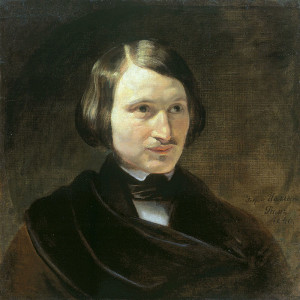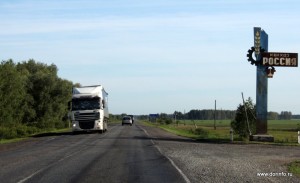
“Russia has two misfortunes – fools and roads”
Nikolay Vasilyevitch Gogol, Ukrainian-born Russian author and dramatist
In the mid-nineteenth century, when the Russian Empire stretched from Germany in the west to Canada in the east, the accuracy of this aphorism attributed to a great Russian writer was obvious at least with regard to Russian roads since most of the empire’s territory had no roads at all. But could Gogol even imagine that more than 160 years after his death, his proverbial phrase would still be relevant?
In 2015, with its territory of 17.2 million square kilometers and its population standing at 146 million, Russia had 1,396,000 kilometers of paved roads. Just for comparison, the United States (the territory of 9.5 million square kilometers and the population of 321 million) has 4.5 times more paved roads, and China (the territory of 9.6 million square kilometers and the population of 1.37 billion) has three times more paved roads and highways than Russia.
Japan, with its population of 128 million being close to that of Russia, has about the same length of paved roads. Its territory of 372 thousand square kilometers, however, is 45 times smaller than that of Russia. Covering 10 million square kilometers, Canada, the second-largest country in the world after Russia and just as cold, has only one third less paved roads, although its population of 34 million is 4 times smaller than Russia’s.
The Kremlin considers Russia’s territory as one of the country’s key advantages. In our opinion, however, this advantage is questionable if only because most areas of Russia’s Northern Eurasia exhibit very tough climate that is even known to negatively impact the health of people who live there on a permanent basis. There is no doubt that the welfare of the population should be any government’s first concern. The Kremlin, however, does not seem to be particularly preoccupied with that: how else can one explain the fact that in the 21st century, the country has no paved roads to access 40,000 of its residential communities? Some remote villages cannot even be reached by the emergency ambulance services.
In the last 15 years, excessive profits from the oil industry could have covered the construction of many kilometers of modern paved roads and highways. However, this turned out to be an overwhelming task for Putin’s regime, which is built on corruption and thinks in terms of kickbacks. According to the media, state officials receive up to 70 percent in kickbacks from road construction and renovation contracts. Needless to say, the existing problem of overpricing in construction-related services is also being widely discussed.
According to Russia’s State Statistics service, during Putin’s presidency, the road network in Russia grew by 812,000 kilometers indicating a growth of 139 percent. Putin, however, seems to be getting his information from different sources. Thus in 2011 he claimed that from 2002 to 2010 about 25,000 kilometers of federal and regional highways had been built in the country, and 18,000 more would be built over the next 8 years.
According to the Russian Federal Road Agency’s (Rosavtodor) even more modest reports, 582 kilometers of new or renovated roads were put into service in 2014; in 2015, this figure showed 130 kilometers less. In 2016, Rosavtodor plans to build 500 kilometers of paved roads. Of course, Rosavtodor only covers federal highways but these figures are also quite revealing.
While government agencies are trying to come to an agreement about the actual number of roads that have been put into service, specialists offer alternative figures, according to which from 1995 to 2005, instead of growing, the total length of roads has in fact decreased by 87,000 kilometers. Instead of much needed roads and a long-awaited bridge across the Lena River, Kremlin builds two fantastically expensive bridges to Russky Island and Crimea, and a new and always empty toll road to the Moscow Sheremetyevo Airport. The Russian government also plans to build a new 521-kilometer Central Ring Road around Moscow for 8,863 trillion rubles ($212.5 million per 1 kilometer of road).

No matter how much Putin’s friends might want to enrich themselves even more, it will hardly be possible to build yet another ring road around Moscow in the context of the current economic crisis—there is simply no money at all for that. Problems with financing arose even during the construction of the bridge across the Kerch Strait to Crimea. Although, despite the crisis, Putin is prepared to increase budget spending on the war and ruling regime security only, he does not forget to provide his cronies the Rotenberg brothers and Chemezov with fat contracts. According to opinion polls, the population entirely supports Putin’s policy. Gogol seems to be right—fools can keep on withstanding misfortunes for another 160 years while waiting for good roads.





